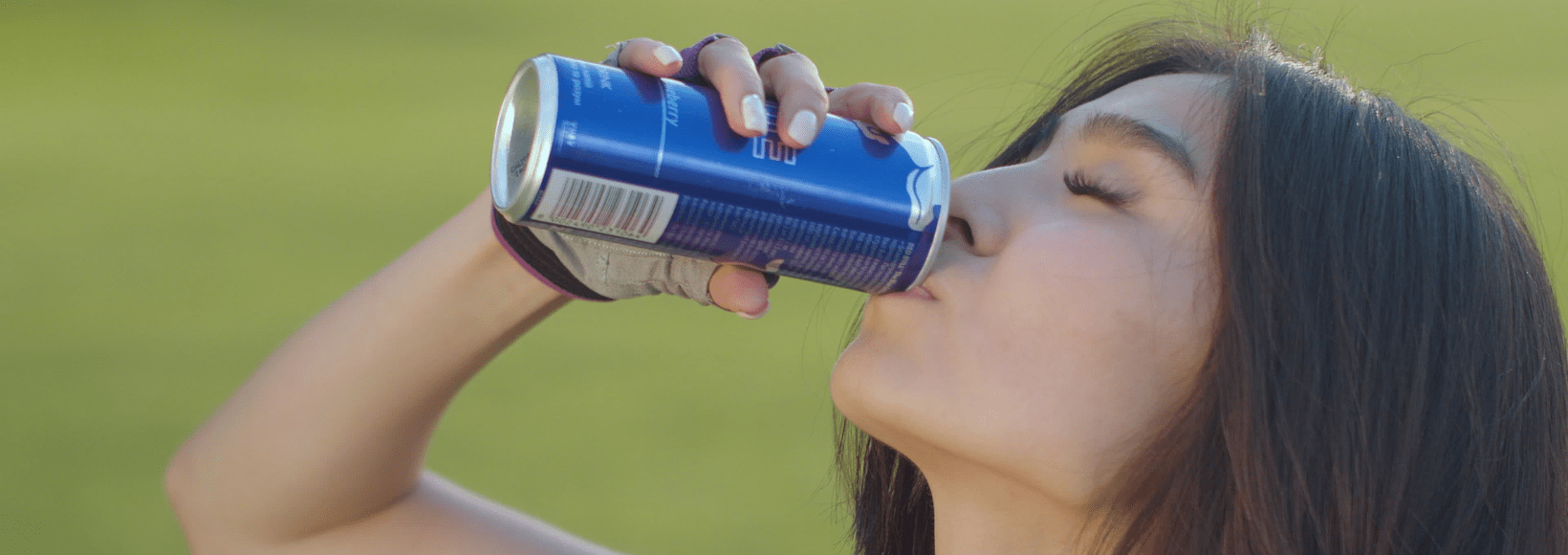
Energy Drinks and Student Well-being
It’s early summer 2005, Dr Lucy, Dr Kat and I stand outside Wilson House in Paddington. We are about to walk into the examination hall to sit our medical final exams, six years of study are leading up to this. Some of our fellow students laugh nervously, sharing jokes among themselves. Others frantically leaf through textbooks in search of last-minute medical revelations. Many hold in their hand a highly caffeinated energy drink. The magical elixir that they hope will give them the edge in the battle against the examiners.
Energy drinks have an undeniable allure. This is particularly the case among under-prepared students seeking a mental performance edge. They are marketed as modern-day elixirs of vitality and focus. These beverages are often seen as the essential fuel for late-night study sessions and intensive exam preparations. But, recent findings from the SHOT2022 study highlight the impact of these ubiquitous drinks on young adults’ sleep and overall health. SHOT2022 was a comprehensive survey of Norwegian students’ health.
The Study at a Glance
The SHOT2022 study delved into the daily habits of over 53,000 young adults. It was conducted across a broad demographic of full-time students in Norway. The study explored the murky, sticky, sweet-smelling waters of energy drink consumption. This ritual was followed by 3.3% of female and 4.7% of male students each day. The study revealed a troubling association between energy drink intake and sleep disturbances. It suggested an urgent need to reassess our reliance on these potent brews.
Energy Drinks and Sleep: A Fraught Relationship
The allure of energy drinks lies in their promise of instant alertness. This is, of course, attributed primarily to their high caffeine content and sometimes, their taurine content. However, the study’s findings suggest that this short-term gain comes at a potentially high cost to long-term health. Regular consumers of energy drinks reported significantly shorter sleep durations and more frequent insomnia than their peers who abstained or indulged only occasionally.
Interestingly, even infrequent consumption of energy drinks was associated with poor sleep outcomes. This highlights the potent effects of their ingredients. The stimulants in energy drinks go beyond caffeine to include sugars and other stimulants like guarana. These components can disrupt sleep patterns and decrease sleep quality. They ultimately leave students tired and offset the very gains in alertness and performance students seek.
Gender Differences in Consumption and Impact
The study also shed light on gender-specific responses to energy drinks. Men generally reported higher consumption rates. In addition, men showed stronger correlations between energy drink intake and disrupted sleep patterns. This included delayed bedtimes and reduced sleep efficiency. The study suggests that energy drinks tend to exacerbate the natural tendency among young men to engage in other behaviours that can also impair sleep. For example, men tended towards increased screen time and irregular sleep schedules.
Navigating a Healthier Path
For health-conscious individuals and those advising them, the takeaway is clear. Energy drinks can offer a temporary boost, but their long-term effects on sleep health are concerning. Instead of relying on these quick fixes, we should consider more sustainable methods to enhance academic performance and energy levels. Regular physical activity, balanced nutrition, and consistent sleep schedules are far more effective in fostering true cognitive and physical vitality. Of course, rigorous academic preparation is also crucial.
The broader implications of this research suggest advocating for healthier lifestyles among students. Rather than relying on the crutch of energy drinks, natural energy boosters and strategies that support both academic success and overall well-being should be emphasised. Encouraging a shift from energy drinks to wholesome alternatives would not only enhance students’ academic performance but also their quality of life.
Conclusion
We continue to establish the collateral health damage of modern dietary habits. Studies like SHOT2022 provide invaluable insights into the often-overlooked consequences of popular choices like energy drinks. Energy drinks reflect a more general trend in society towards quick fixes rather than perseverance and hard work. For students and young professionals navigating the demands of high-level education and early career challenges, understanding these impacts is crucial. It invites a reevaluation of how we fuel our bodies and minds. We should be aiming for sustained energy and focus. That would support not only academic and professional success but also long-term health and wellness.
Dr J Hugh Coyne
Parsons Green